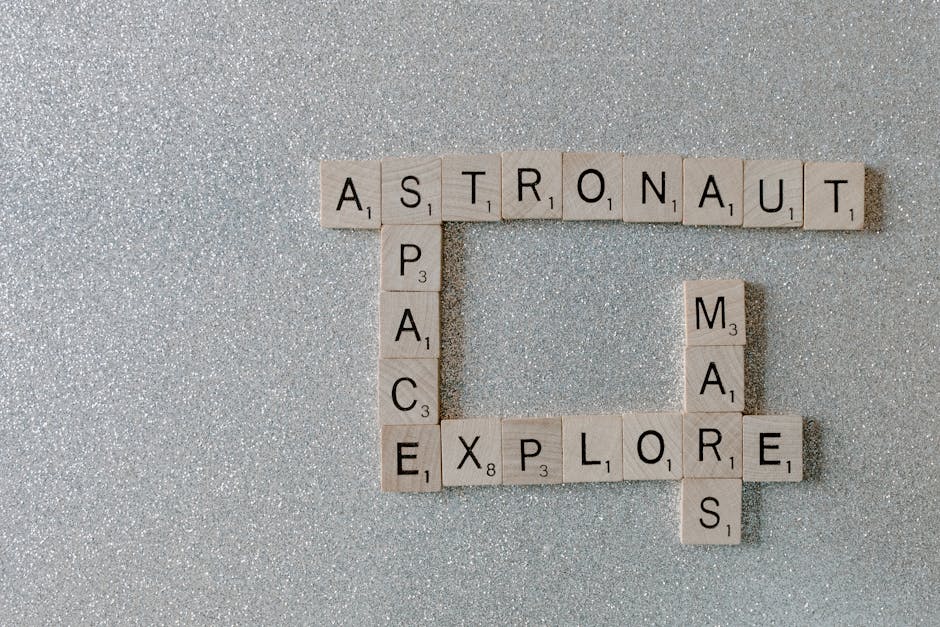Table of Contents
Alright, pull up a chair, or don’t, I ain’t your bloody mother. We’re gonna talk about the New York Times XL Crossword. The big one. The one that lands on a Sunday, lookin’ all innocent and spread out, like some kind of linguistic booby trap. For twenty-odd years, I’ve seen ‘em come and go, these puzzles. Folks get all misty-eyed about the daily quickie, the mini even, bless their hearts. But the XL? That’s a whole different animal, mate. It’s the Sunday beast, the one that makes folks swear, throw their papers, or, these days, rage-quit their screens. And let me tell ya, if you think it’s just more squares and clever clues, you’ve got another think coming. It’s a commitment, a test of patience, and, if we’re being honest, sometimes a pure, unadulterated pain in the backside.
I remember this one time, back when the paper was still newsprint and coffee stains were a badge of honour. We had this new intern, fresh out of some fancy journalism school, bright-eyed and bushy-tailed, talking about “synergy” and “actionable insights” before his first cuppa. Bless his cotton socks. He saw me wrestle with the XL one Sunday morning, right there in the office, trying to make sense of some convoluted clue about a Greek god and a type of cheese. He comes over, all earnest, “Mr. Davies, is that… the extra-large one? Is it really that much harder?” I just looked at him, took a long drag from my stale cigarette – yeah, I used to smoke indoors, sue me – and said, “Son, it ain’t harder, it’s longer. And sometimes, that’s what makes it harder. Like trying to herd a flock of confused sheep through a very narrow gate. You get there eventually, but you’ll lose a few on the way and probably step in some crap.” He just blinked. Poor lad. Probably went back to his desk and Googled “herd sheep narrow gate analogy.” He didn’t last long, but the XL? That thing’s still going strong.
Why Bother with the Big Bloody Thing?
So, why do we do it? Why do you do it, if you’re one of the afflicted? Is it the sheer size of the damn thing? The promise of a solid hour or three – or, if you’re like me, half a bloody day, on and off – of head-scratching? I reckon it’s the chase, innit? That little flutter of excitement when you nail a tough one, that moment when a completely obscure bit of trivia suddenly clicks, and you’re like, “Aha! I knew that!” even though you’re pretty sure you just made it up. It’s that feeling of quiet triumph, sitting there with your coffee, the world outside doing whatever it does, and you’re just… solving. It’s a bit of a solo sport, really. Like going for a long walk in the Valleys, just you and your thoughts, except your thoughts are trying to figure out a seven-letter word for “a type of bird found only on a remote island known for its peculiar mating dance.”
For a lot of folks, and I hear this chatter down at the local, it’s a Sunday ritual. The papers arrive, the bacon’s frying, and the XL is laid out. It’s a challenge, sure, but it’s also a comfort. A constant in a world that, let’s be honest, feels like it’s constantly trying to trip you up. The New York Times crossword, in general, has this reputation, right? It’s the big dog. The standard. And the XL is its biggest, most slobbery, most intimidating Rottweiler. It’s got history, a certain gravitas. People talk about “NYT crossword solvers” like they’re a special breed, like they’ve got some secret handshake or something. And the XL just amps that up. It’s the marathon, not the sprint. And some of us, God bless our twisted little minds, we like the long haul. We like the burn.
The Sunday Scramble: What Makes it Different?
Now, let’s get down to brass tacks. What actually sets the XL apart from its smaller, weekday cousins? It ain’t just the real estate, though that’s a big part of it. The grid’s bigger, obviously. More squares, more chances for them smarty-pants constructors to hide obscure words and twist familiar phrases into knots. I’ve seen some clues in those XLs that made me want to throw my coffee cup at the wall. Clues that felt like they were written by someone who exclusively speaks in riddles and knows every single capital city of every single tiny island nation you’ve never heard of. It’s not just the vocabulary either; it’s the way they play with language. Puns that make your teeth ache, clues that rely on a single, obscure meaning of a common word, or themes that are so subtle you don’t even see ‘em until you’re three-quarters done and suddenly, boom, it clicks.
In my experience, the themes in the XL are often more complex, more layered. They might stretch across the entire puzzle, with multiple entries playing on the same concept, sometimes in really clever ways. Other times, it’s just a bloody slog with no clear theme, just a bunch of random, tough words. That’s when you know the constructor was just being mean. And, let’s be straight, that happens. It’s not always sunshine and rainbows. Sometimes, it’s just hard work. You ever had a puzzle where you just stare at a blank section, and it stares back, judging you? Like it knows you don’t know that three-letter word for a medieval shoe buckle. Yeah, that’s the XL on a bad day.
A Word on Difficulty and The Great “Is It Harder?” Debate
So, is the XL actually harder, or just longer? That’s a question I hear a lot, especially from folks who are new to the puzzle game. It’s like asking if a long road trip is harder than a short one. Well, yeah, you’re driving for more hours, so there’s more opportunity for things to go wrong, for you to get tired, for the kids in the back to start squawling. It’s the same with the XL. More squares mean more opportunities for tricky clues, for less common words, for themes that are more abstract.
Look, a weekday puzzle, you can often knock it out over your lunch break, right? Or while you’re waiting for the kettle to boil. The XL? Nah, that thing demands respect. It demands time. You gotta clear your schedule, maybe put on some tunes, and settle in. It’s not a quick fix. It’s a proper sit-down job. If you hit a wall on a Tuesday puzzle, you can usually just Google that one word and move on. But when you’re staring at a mostly empty XL grid on a Sunday afternoon, and you’ve got maybe twenty-odd blanks staring back at you, well, that’s when the self-doubt creeps in. That’s when you wonder if you’re really as sharp as you thought you were. It’s a mental workout, and sometimes, you just wanna call in sick.
And let’s be clear, sometimes they throw a curveball. What’s the biggest difference between the Sunday NYT Crossword and the XL NYT Crossword? Simple. The XL is the Sunday NYT Crossword. “XL” is just their way of saying, “Hey, this is the big one, the one that’s been tradition for decades.” It’s not a separate thing; it’s the thing for Sundays. Confusing, isn’t it? Just like some of their clues.
The Language of the Grid: From Texas Twang to Geordie Grit
One of the things I always find amusing about these puzzles, particularly the XL, is how they manage to fit so many different worlds into a tiny grid. You’ll get clues that scream “New York intellectual,” right alongside something that sounds like it came straight out of a pub quiz in Glasgow. Or a proper daft clue that feels like it’s lifted from a dusty book in a Welsh library.
Take a word like “y’all.” You’ll see that pop up, nice and casual, like it’s been invited to a backyard BBQ in Houston. And then two lines down, you’re trying to figure out a word for a type of cloud that only forms over the Cheviot Hills, which is something only a Northumberland shepherd would know. It’s a proper mishmash, isn’t it? You might even get some surfer slang from california – “gnarly,” “rad,” that sort of thing – squeezed in next to a very formal, almost stuffy British term. I’ve seen words that remind me of my grandad from Dudley, saying something was “bostin’,” though they wouldn’t use that in the puzzle itself, more’s the pity. It’s a global village in 21×21 squares.
It makes you wonder, who writes these things? Some boffin in a tweed jacket with a dictionary from 1890, or a young whippersnapper who spends their weekends coding and saying “innit”? My belief is it’s a bit of both, a blend of generations and perspectives. And that’s what gives the XL its character. It’s got that old-school charm but tries to keep up with the times, sometimes awkwardly, like your uncle trying to use TikTok.
When the Words Just Don’t Come: The Wall
We’ve all hit it. That brick wall. You’re sailing along, feeling clever, filling in squares left and right, and then… nothing. Just a vast, empty expanse of white. This often happens with the XL because of its sheer size. More surface area for your brain to just short-circuit. Sometimes it’s a thematic clue that you just aren’t getting, or a particular area of knowledge you’re completely blank on. Maybe it’s a sports reference, and you’re more into obscure poetry. Or a classical music term, and your ears only register AC/DC.
What do you do then? You put the damn thing down. Go make a cup of tea. Walk the dog. Look out the window at the pigeons. Anything but stare at that grid, willing the answers to appear. Because in my experience, a fresh pair of eyes, even if they’re the same eyes after a break, can make all the difference. It’s like when you’re writing a difficult headline. You stare at it, you re-read it, and it just looks wrong. You walk away for five minutes, come back, and suddenly the perfect phrasing pops into your head. Crosswords are exactly the same. You come back, and suddenly, “Oh, of course! It’s ’emu’!” Why didn’t you see that ten minutes ago? Who knows. Brains are weird, aren’t they? How much time does it take to finish the XL NYT Crossword? Honestly, it’s like asking how long is a piece of string. Could be an hour for a genius, three for an average Joe like me, or all bloody day if it’s a proper stinker. It depends on the puzzle, and it depends on you.
The Digital Divide: Screens vs. Paper
Now, here’s a thing that always gets my goat a bit. The screen. Everyone’s doing their puzzles on tablets and phones these days. “Digital native,” they call it. I get it, I do. No ink on your fingers, no lost pencils, you can do it anywhere. But there’s something to be said for the feel of the paper, the scratch of the pen, the way the light catches the words. It feels… real. Like you’re actually doing something, not just tapping away at glass.
When I started out, it was all paper, all the time. Stacks of it. My desk was a bloody warzone of half-eaten sandwiches, coffee rings, and crosswords. And when you finished one, you’d fold it up, maybe stick it in a drawer, or if it was a particularly good one, pin it up on the corkboard for a day or two, just to admire your handiwork. Now? You tap “submit,” and it’s gone, vanished into the digital ether. It’s faster, sure. More convenient, perhaps. But does it have the same soul? I don’t reckon so.
But, alright, I’m an old fart, I’ll grant you that. The younger generation, they grew up with screens. For them, it’s just how things are done. And if doing it on a screen means more people are getting stuck into the XL, then I suppose that’s a good thing. Keeps the old grey matter ticking over. Though I still prefer a proper newspaper, the smell of the ink, the rustle of the pages. You don’t get that from a blinking screen, do you? And you can’t use your phone to swat a fly when it’s buzzing around your head, not without risking a grand’s worth of damage anyway.
The Community, Such as It Is
You know, for something that’s mostly a solo pursuit, there’s a surprising amount of chatter around the XL NYT crossword. Online forums, social media, even just blokes at the pub debating a clue. It’s this weird, unspoken community of people who all share this peculiar hobby. They might not know each other, might be on opposite sides of the world, but they all understand the agony of a difficult theme or the joy of a perfectly placed reveal.
I’ve seen people ask for help with particular clues. “What’s an eight-letter word for ‘something a badger does in the garden at dawn’?” (Okay, I made that one up, but you get the drift). And you’ll see dozens of replies, everyone chiming in, offering suggestions, commiserating. It’s like a worldwide support group for people who like to torture themselves with words. I suppose it makes sense. Humans are social creatures, even when they’re locked in a battle of wits with a sheet of paper or a glowing screen. When does the XL NYT Crossword come out? Every Sunday, same as it ever was. A predictable bit of torture to start your week. And who needs a separate “Key Takeaways” section when you’re just shootin’ the breeze, eh?
Tips for Not Losing Your Mind (Mostly)
So, if you’re new to the XL, or just consistently getting your backside handed to you, what’s the secret? Ain’t no magic wand, I’ll tell you that for free. But there are a few things I’ve picked up over the years.
1. Don’t be a hero. Seriously. If you’re stuck, it’s not a crime to use a bit of help. Look up a word. Ask a mate. The goal is to finish the puzzle, not to prove you’re a walking dictionary. If you’re doing it on a screen, the little “check puzzle” button is a tempting devil. Use it sparingly, or you’ll never learn.
2. Start with what you know. Hit the easy clues first. Get some letters on the board. A few completed words can open up whole sections, revealing letters for trickier answers. It’s like building a wall; you don’t start with the complicated bits, you lay the foundation first.
3. Pay attention to the little things. They’re always trying to trick you. A clue that says “Apple product, maybe” might not be an iPad; it could be the fruit. Or a clue ending with a question mark usually means a pun. Look for those stylistic quirks.
4. Take a break. As I said, step away. Your brain needs a breather. It’s amazing what a ten-minute walk or a cup of tea can do for a stuck puzzle.
5. Don’t get discouraged. Some puzzles are just plain tougher than others. It’s not a reflection of your intelligence, just a reflection of the constructor having a particularly mischievous day. Everyone gets stumped. What’s the best strategy for the XL NYT Crossword? Patience, pure and simple. And a willingness to walk away before you throw your tablet across the room.
The End of the Line (For Now)
Look, the XL NYT crossword ain’t going anywhere. It’s a fixture, like grumpy editors and overpriced coffee. It’s a challenge, a pastime, a ritual, and sometimes, a right royal pain. But it’s ours, isn’t it? This weird little obsession we have with words and grids. It’s a way to shut out the noise for a bit, to flex those grey cells, and to feel, for a fleeting moment, like you’ve conquered something. Even if that something is just a bunch of cleverly arranged letters.
I’ve spent more Sunday mornings than I care to count hunched over one of these things, muttering to myself, convinced I’m losing my mind, only to finally get that last word and feel that little spark of satisfaction. And that, my friends, is why we keep coming back. For that moment. For that brief, fleeting feeling of intellectual triumph. Now, if you’ll excuse me, I think I saw a clue about a type of Australian marsupial that lives in a swamp and only comes out at night. And I reckon I know it. Just might need another cup of coffee. Don’t worry about me. I’m fine. I’m always fine. Just a bit more… word-wrestling to do.












